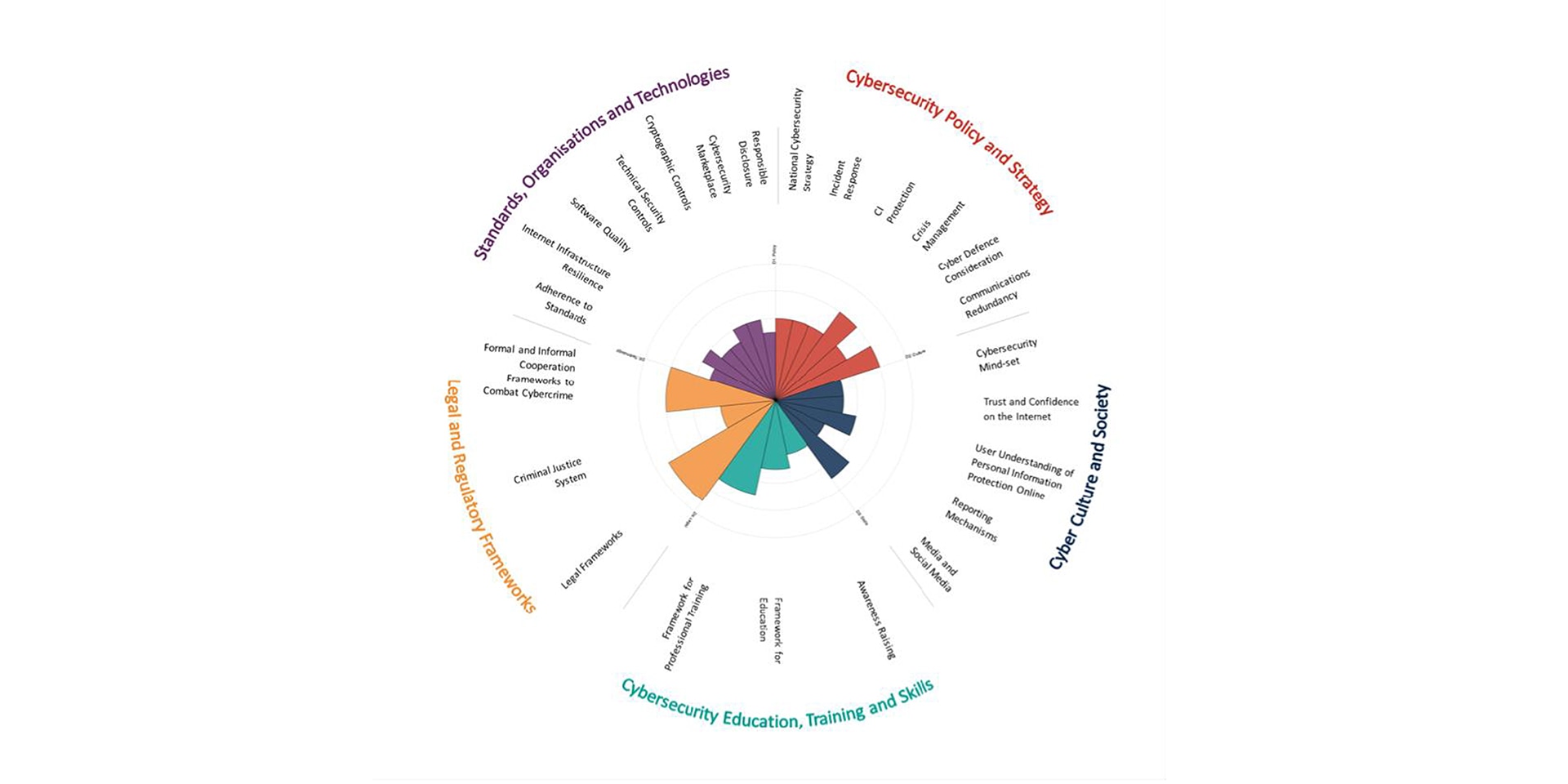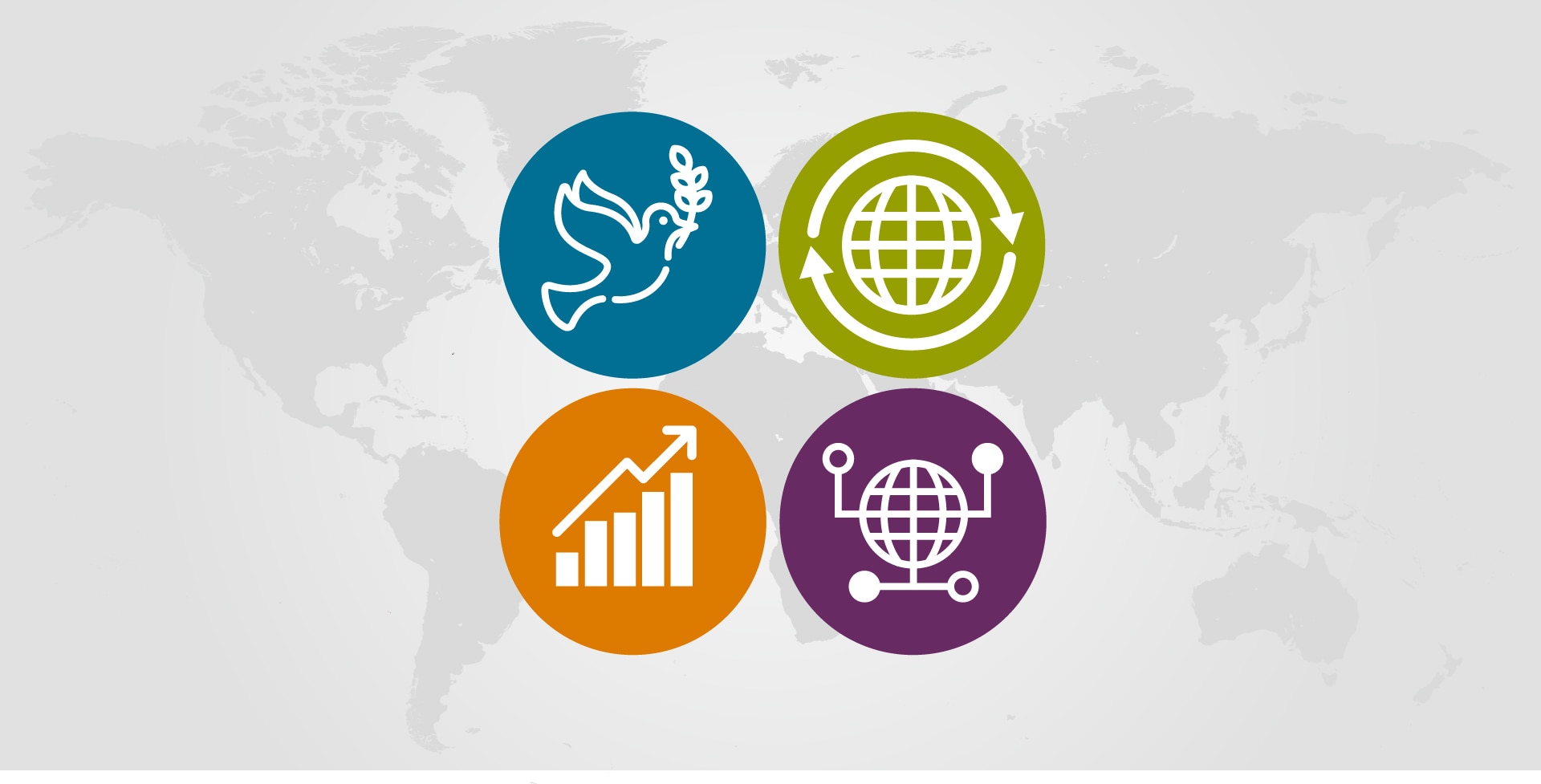The strengths and weaknesses of Swiss cybersecurity
The University of Oxford has conducted an evaluation of cybersecurity in Switzerland on behalf of the Federal Department of Foreign Affairs (FDFA) and the Federal Department of Finance (FDF). The study lends weight to the Confederation's reorganisation in the area of cybersecurity risks, while its publication emphasises Switzerland's readiness to engage in fact-based dialogue.

Switzerland's key cybersecurity strengths are in the areas of politics and strategy, as well as in its legal and regulatory frameworks. © Keystone
The Covid-19 pandemic clearly demonstrates the interconnectedness of today's world, as well as the opportunities modern technologies offer – particularly through digitalisation. The world is in a state of digital transformation, and there are cybersecurity risks inherent in this process:existing threats are developing while new ones are emerging. Countries around the world are working hard to shape digital transformation processes in a way that fully exploits the opportunities of this technology-driven change for their citizens.
However, the proliferation of digital technology also has its risks. Its development is uncertain due to technical, economic and political factors, and it is vulnerable to criminal and political exploitation. Other risks include large-scale industrial and political cyber espionage, strategic influencing campaigns, and threats to critical infrastructure of national importance. It is therefore essential that cybersecurity continues to improve if the digital transformation is to succeed.
Evaluating Swiss cybersecurity, projecting transparency
In order to tackle tomorrow's problems today, it is imperative that we analyse the current situation and learn where things stand, as well as where our strengths and weaknesses lie. In autumn 2019, therefore, the Federal Department of Foreign Affairs (FDFA) and the Federal Department of Finance (FDF) commissioned the University of Oxford with a study on the current state of cybersecurity in Switzerland. The study should provide an initial basis for assessing the Confederation's reorganisation in the area of cybersecurity risks, while the report allows Switzerland to set a good example on the world stage by submitting to an evaluation. "The structured approach and clear measurement criteria create transparency and facilitate comparisons with other states," explains Jon Fanzun, the FDFA's Special Envoy for Cyber Foreign and Security Policy.
The conclusions of the study can then be incorporated into the evaluation of the Confederation's cybersecurity structures, which were created within the framework of the National strategy for the protection of Switzerland against cyber risks (NCS) for the period 2018–22. Conducting and publishing the study will also send out a strong signal beyond Swiss borders. "The study emphasises Switzerland's willingness to engage in fact-based discussion with other states. This transparency builds trust and strengthens cooperation, and our approach also encourages other states to undergo their own evaluations."
A focus on politics, culture, and legal conditions
Eighty different states have already undergone evaluations based on Oxford University's cybesecurity methodology. Switzerland is now the first Western European country after the United Kingdom to undergo an external evaluation of this kind. "Switzerland wants to set a good example on the world stage and build trust. By undergoing an external study that employs recognised methods and then publishing the results, we're showing that we're transparent," Jon Fanzun notes.
As part of the evaluation, the study focuses on five aspects:
- Politics and strategy
- Culture and society
- Education and skills
- The legal and regulatory frameworks
- Standards, organisations, and technologies

Switzerland is particularly strong in the areas of politics and strategy, as well as in its legal and regulatory frameworks. The final report featuring detailed analysis was completed in June 2020 after a consultation with all persons and federal departments involved, and was presented to the Federal Council on 4 November 2020.
Digital frameworks for stable political development
The comprehensive final report demonstrates Switzerland's various strengths and weaknesses in the area of cybersecurity. "Among other things, the study praises Switzerland's legal frameworks, cooperation mechanisms for combating cybercrime, vocational training and further education, and media competence," explains Jon Fanzun. Alongside the strengths, the report also makes 53 suggestions for further optimising cybersecurity in Switzerland. "The report identifies room for improvement in areas such as the fight against cybercrime in the justice system, awareness about cybersecurity threats in society, and the mechanisms for reporting incidents."
The misuse of digital technologies is one of the great challenges of the 21st century. Digital spaces are increasingly being misappropriated for criminal, power politics and intelligence purposes. This not only harms individual countries, but can also destabilise world order. It is therefore all the more important to have clear framework conditions and an open exchange of ideas at the bilateral and multilateral levels. Switzerland is making a global commitment for a free, open and secure digital space that can act as the foundation for stable political development and a robust economy, both domestically and internationally.
Coherent foreign policy in the digital space
Digitalisation offers new opportunities for diplomacy, poverty reduction and sustainable development. But there are also risks involved in the processing of vast amounts of data, the spread of fake news and surveillance. By adopting the Digital Foreign Policy Strategy 2021–2024, the Federal Council is acknowledging digitalisation as a thematic priority of Switzerland's foreign policy. Read the article



